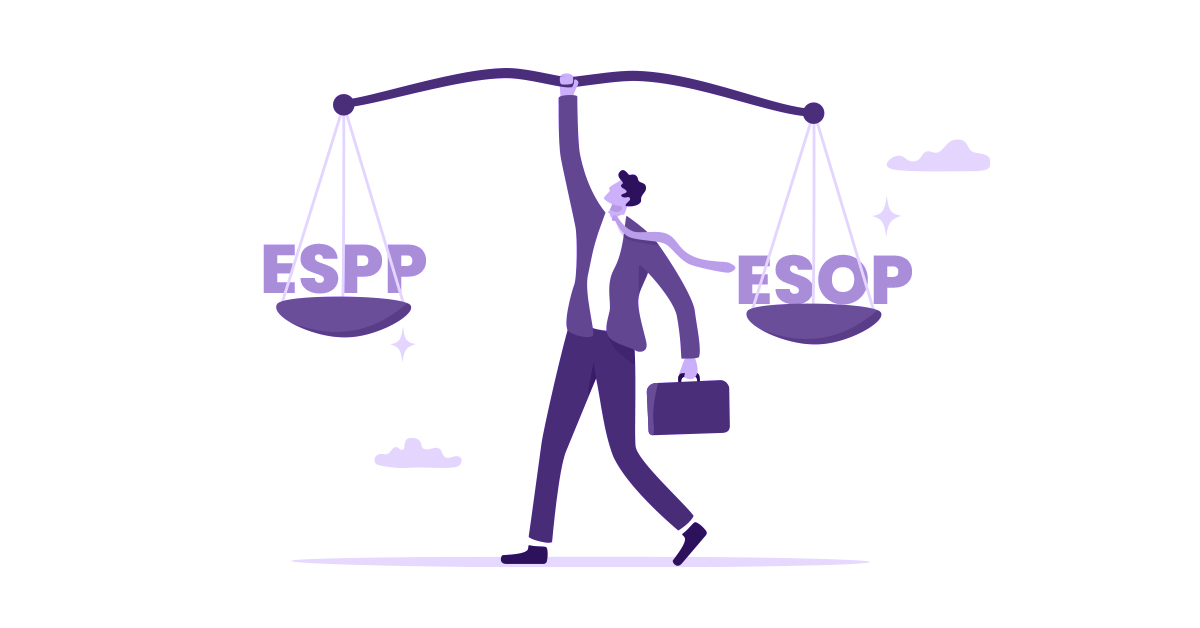Have you considered alternative methods for incentivizing employees beyond conventional stock options?
Companies seeking to incentivize and retain top talent (usually senior management) without offering traditional equity ownership can look to phantom shares, also known as phantom equity or shadow stock. Phantom shares provide a unique approach for companies to mimic stock ownership for employees without issuing any company stock.
This comprehensive guide will help you understand what phantom shares are, how they operate, the various types, and their advantages and disadvantages.
What are Phantom Shares?
Phantom shares, also known as phantom stock, are a form of compensation where employees receive notional shares in a company without actual ownership rights. This type of plan, often referred to as shadow stock, provides selected employees, typically senior management, with many benefits of stock ownership without the actual transfer of company stock.
Instead of receiving physical stock, employees are granted mock stock that mirrors the price movement of the company's actual stock, allowing them to benefit from any resulting profits.
In essence, a phantom stock plan is a deferred compensation arrangement where selected employees can enjoy the upside potential of a company's share price without holding real shares.
Types of Phantom Shares
Phantom shares, a form of compensation that mimics actual stock ownership without conferring ownership rights, come in different types tailored to meet varying objectives within companies. Here are the two main types of phantom shares:
1. Appreciation-Only Phantom Shares
Appreciation-Only Phantom Shares plans grant employees only the appreciation in value of the phantom shares upon vesting. Employees receive a cash payment equivalent to the increase in value of the shares, not the full value.
For example, if an employee is granted 1,000 Appreciation-Only Phantom Shares with a baseline value of $10 per share, and the company's stock price rises to $20 per share at vesting, the employee would receive a cash payout of $10,000 (1,000 shares x ($20 - $10)).
2. Full Value Phantom Shares
In a Full Value Phantom Shares plan, employees receive the full value of the phantom shares upon vesting. This means that when the shares mature, employees are entitled to a cash payment equivalent to the total value of the phantom shares.
For example, if an employee is granted 1,000 Full-Value Phantom Shares with an initial value of $10 per share, and the company's stock price rises to $15 per share at vesting, the employee would receive a cash payout of $15,000 (1,000 shares x $15).
How do Phantom Shares work?
Phantom stock units are tied to the value of your company's stock and generally vest over a set period. Instead of giving unitholders the right to acquire company shares, phantom stock gives them a cash pay-out on settlement.
Depending on how the award is structured, phantom stock can vest after employees have served a set period of time (e.g., if they've been with the company for over one year) or when the company reaches a performance milestone, such as hitting a revenue target. Either way, vesting is a company-initiated controlled event - which allows you to pay out multiple employees at the same time.
Once phantom stock vests, the cash pay-out is equal to the full aggregate value of a stock unit in your company.
Example of Phantom Shares
So, if an employee is issued phantom stock when your stock is valued at $10 and the award vests when your stock is valued at $50, the cash pay-out will be $50 per unit. In the same vein, if your stock's value declines in the interim - to, say, $5 at vesting - the cash payout would be $5 per unit.
Advantages and Disadvantages of Phantom Shares
Phantom shares, a strategic tool in employee compensation, offers unique advantages and disadvantages that companies must consider when implementing these equity plans.
Advantages of Phantom Shares
1. Incentivizing and Retaining Key Employees
Phantom shares serve as a powerful incentive to motivate and retain top talent within the organization. By linking employee compensation to company performance, businesses can attract and retain key personnel crucial for growth.
2. Alignment of Employee and Shareholder Interests
Phantom shares align the interests of employees with those of shareholders without diluting actual ownership. This alignment ensures that employees benefit from the company's success, cultivating a sense of ownership and dedication.
3. Non-Dilutive Reward System
Phantom shares provide a non-dilutive way to reward employees without issuing actual company stock. This allows companies to maintain control over ownership while still offering valuable incentives.
Disadvantages of Phantom Shares
1. Lack of Actual Ownership
One significant drawback of phantom shares is that employees do not have actual ownership rights in the company. This lack of ownership can impact decision-making processes and voting rights within the organization.
2. Limited Voting and Decision-Making Rights
Participants in phantom share plans typically do not have voting rights or a say in company decisions. This limitation can affect their level of engagement and involvement in strategic matters.
3. No Financial Dividends
Unlike actual shareholders, holders of phantom shares do not receive financial dividends from the company. This can be a disadvantage for employees seeking direct financial benefits beyond the value appreciation of their phantom shares.
4. Cash Requirements
Unlike stock options or restricted stock units (RSUs), which involve the issuance of actual shares, phantom share payouts require the company to have sufficient cash reserves on hand. This can strain the company's liquidity, especially if many phantom shares vest simultaneously.
5. Tax Implications
When employees get cash payouts as their phantom stock units vest, they usually face ordinary income taxes. The company might also need to withhold taxes on the payout, causing an added tax burden for both employees and the company.
FAQs on Phantom Shares:
1. Is Phantom Shares a good idea?
Phantom stock can be a valuable tool for incentivizing employees without granting actual ownership. It aligns interests between employees and the company's success while avoiding dilution.
2. How are phantom shares taxed?
Phantom shares are typically taxed as ordinary income when they vest. The tax treatment may vary based on jurisdiction and specific plan structures.
3. Phantom shares vs Stock Appreciation Rights
While both Phantom Shares and Stock Appreciation Rights (SARs) are used for similar purposes, SARs provide employees with cash equivalent to the appreciation in stock value, whereas Phantom Shares mimic actual stock ownership without granting voting rights.


 Equity management
Equity management

 Fund management
Fund management

 Fund management
Fund management

 Fund management
Fund management











































